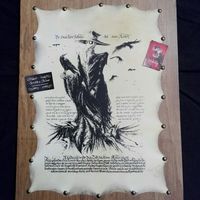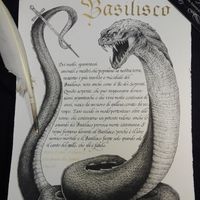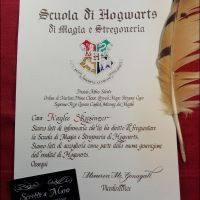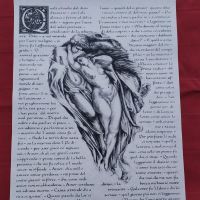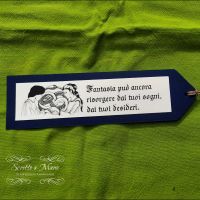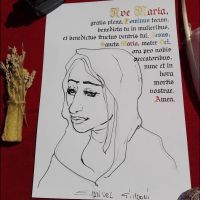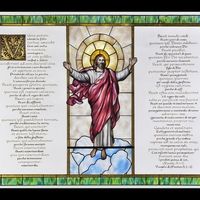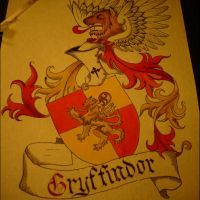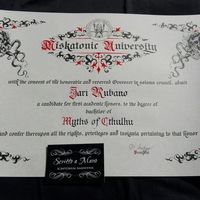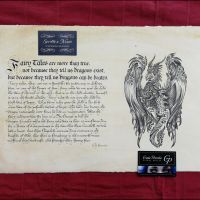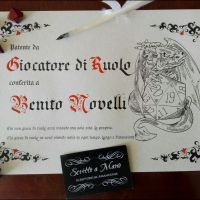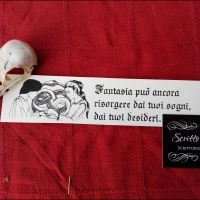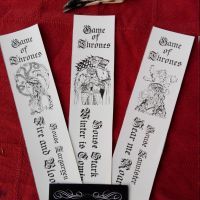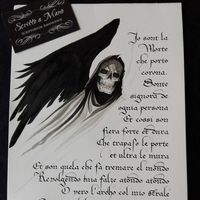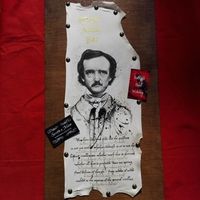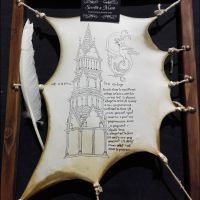Estratto da The Raven (il Corvo) - E.A.Poe "Quoth the Raven: 'Nevermore'"
- codice: 319
- larghezza (cm): 58
- altezza (cm): 34
- disponibile subito: no
- valuta tempi: tempi di produzione
- supporto: Vellum
- materiali e strumenti: Inchiostro ferrogallico, Penna d'oca
Una volta, a mezzanotte, mentre stanco e affaticato
meditavo sovra un raro, strano codice obliato,
e la testa grave e assorta — non reggevami piú su,
fui destato all’improvviso da un romore alla mia porta.
«Un viatore, un pellegrino, bussa — dissi — alla mia porta,
solo questo e nulla più!»
Oh, ricordo, era il dicembre e il riflesso sonnolento
dei tizzoni in agonia ricamava il pavimento.
Triste avevo invan l’aurora — chiesto e invano una virtù
a’ miei libri, per scordare la perduta mia Lenora,
la raggiante, santa vergine che in ciel chiamano Lenora
e qui nome or non ha più!
E il severo, vago, morbido, ondeggiare dei velluti
mi riempiva, penetrava di terrori sconosciuti!
tanto infine che, a far corta — quell’angoscia, m’alzai su
mormorando: «È un pellegrino che ha battuto alla mia porta,
un viatore o un pellegrino che ha battuto alla mia porta,
questo, e nulla, nulla più!».
Calmo allor, cacciate alfine quelle immagini confuse,
mossi un passo, e: «Signor — dissi — o signora, mille scuse!
ma vi giuro, tanto assorta — m’era l’anima e quassù
tanto piano, tanto lieve voi bussaste alla mia porta,
ch’io non sono ancor ben certo d’esser desto». Aprii la porta:
un gran buio, e nulla più!
Impietrito in quella tenebra, dubitoso, tutta un’ora
stetti, fosco, immerso in sogni che mortal non sognò ancora!
ma la notte non dié un segno — il silenzio pur non fu
rotto, e solo, solo un nome s’udì gemere: «Lenora!»
Io lo dissi, ed a sua volta rimandò l’eco: «Lenora!»
Solo questo e nulla più!
E rientrai! ma come pallido, triste in cor fino alla morte
esitavo, un nuovo strepito mi riscosse, e or fu sì forte
che davver, pensai, davvero — qualche arcano avvien quaggiù,
qualche arcan che mi conviene penetrar, qualche mistero!
Lasciam l’anima calmarsi, poi scrutiam questo mistero!
Sarà il vento e nulla più!
Qui dischiusi i vetri e torvo, — con gran strepito di penne,
grave, altero, irruppe un corvo — dell’età la più solenne:
ei non fece inchin di sorta — non fe’ cenno alcun, ma giù...
[...]
...quel feral, sinistro, magro, triste, infausto augel di Pluto
col suo lugubre: «Mai più!».
Così assorto in fantasie stetti a lungo, e sempre intento
all’augello i di cui sguardi mi riempivan di spavento,
non osai più aprire labro — sprofondato sempre giù
fra i cuscini accarezzati dal chiaror di un candelabro
fra i cuscini rossi ov’ella, al chiaror di un candelabro,
non verrà a posar mai più!
Allor parvemi che a un tratto si svolgesse in aria, denso
e arcan, come dal turibolo d’un angelo, un incenso.
«O infelice, dissi, è l’ora! — e infin ecco la virtù
e il nepente che imploravi per scordar la tua Lenora!
Bevi, bevi il filtro e scorda! scorda alfin questa Lenora!»
Mormorò l’augel: «Mai più!».
«O profeta — urlai — profeta, spettro o augel, profeta ognora!
o l’Averno t’abbia inviato — o una raffica di bora
t’abbia, naufrago, sbalzato — a cercar asil quaggiù,
in quest’antro di sventure, di’ al meschino che t’implora,
se qui c’è un incenso, un balsamo divino! egli t’implora!»
Mormorò l’augel: «Mai più!».
«O profeta — urlai — profeta, spettro o augel, profeta ognora!
per il ciel sovra noi teso, per l’Iddio che noi s’adora
di’ a quest’anima se ancora — nel lontano Eden, lassù,
potrà unirsi a un’ombra cara che chiamavasi Lenora!
a una vergine che gli angeli ora chiamano Lenora!»
Mormorò l’augel: «Mai più!».
«Questo detto sia l’estremo, spettro o augello — urlai sperduto.
Ti precipita nel nembo! torna ai baratri di Pluto!
non lasciar piuma di sorta — qui a svelar chi fosti tu!
lascia puro il mio dolore, lascia il busto e la mia porta!
strappa il becco dal mio cuore! t’alza alfin da quella porta!»
Disse il corvo: «Mai, mai più!»
E la bestia ognor proterva — tetra ognora, è sempre assorta
sulla pallida Minerva — proprio sopra alla mia porta!
Il suo sguardo sembra il guardo — d’un dimon che sogni, e giù
sui tappeti il suo riflesso tesse un circolo maliardo,
e il mio spirto, stretto all’ombra di quel circolo maliardo
non potrà surger mai più!
Once upon a midnight dreary, while I pondered, weak and weary,
Over many a quaint and curious volume of forgotten lore—
While I nodded, nearly napping, suddenly there came a tapping,
As of some one gently rapping, rapping at my chamber door.
“’Tis some visitor,” I muttered, “tapping at my chamber door—
Only this and nothing more.”
Ah, distinctly I remember it was in the bleak December;
And each separate dying ember wrought its ghost upon the floor.
Eagerly I wished the morrow;—vainly I had sought to borrow
From my books surcease of sorrow—sorrow for the lost Lenore—
For the rare and radiant maiden whom the angels name Lenore—
Nameless here for evermore.
And the silken, sad, uncertain rustling of each purple curtain
Thrilled me—filled me with fantastic terrors never felt before;
So that now, to still the beating of my heart, I stood repeating
“’Tis some visitor entreating entrance at my chamber door—
Some late visitor entreating entrance at my chamber door;—
This it is and nothing more.”
Presently my soul grew stronger; hesitating then no longer,
“Sir,” said I, “or Madam, truly your forgiveness I implore;
But the fact is I was napping, and so gently you came rapping,
And so faintly you came tapping, tapping at my chamber door,
That I scarce was sure I heard you”—here I opened wide the door;—
Darkness there and nothing more.
Deep into that darkness peering, long I stood there wondering, fearing,
Doubting, dreaming dreams no mortal ever dared to dream before;
But the silence was unbroken, and the stillness gave no token,
And the only word there spoken was the whispered word, “Lenore?”
This I whispered, and an echo murmured back the word, “Lenore!”—
Merely this and nothing more.
Back into the chamber turning, all my soul within me burning,
Soon again I heard a tapping somewhat louder than before.
“Surely,” said I, “surely that is something at my window lattice;
Let me see, then, what thereat is, and this mystery explore—
Let my heart be still a moment and this mystery explore;—
’Tis the wind and nothing more!”
Open here I flung the shutter, when, with many a flirt and flutter,
In there stepped a stately Raven of the saintly days of yore;
Not the least obeisance made he; not a minute stopped or stayed he;...
[...] What this grim, ungainly, ghastly, gaunt, and ominous bird of yore
Meant in croaking “Nevermore.”
This I sat engaged in guessing, but no syllable expressing
To the fowl whose fiery eyes now burned into my bosom’s core;
This and more I sat divining, with my head at ease reclining
On the cushion’s velvet lining that the lamp-light gloated o’er,
But whose velvet-violet lining with the lamp-light gloating o’er,
She shall press, ah, nevermore!
Then, methought, the air grew denser, perfumed from an unseen censer
Swung by Seraphim whose foot-falls tinkled on the tufted floor.
“Wretch,” I cried, “thy God hath lent thee—by these angels he hath sent thee
Respite—respite and nepenthe from thy memories of Lenore;
Quaff, oh quaff this kind nepenthe and forget this lost Lenore!”
Quoth the Raven “Nevermore.”
“Prophet!” said I, “thing of evil!—prophet still, if bird or devil!—
Whether Tempter sent, or whether tempest tossed thee here ashore,
Desolate yet all undaunted, on this desert land enchanted—
On this home by Horror haunted—tell me truly, I implore—
Is there—is there balm in Gilead?—tell me—tell me, I implore!”
Quoth the Raven “Nevermore.”
“Prophet!” said I, “thing of evil!—prophet still, if bird or devil!
By that Heaven that bends above us—by that God we both adore—
Tell this soul with sorrow laden if, within the distant Aidenn,
It shall clasp a sainted maiden whom the angels name Lenore—
Clasp a rare and radiant maiden whom the angels name Lenore.”
Quoth the Raven “Nevermore.”
“Be that word our sign of parting, bird or fiend!” I shrieked, upstarting—
“Get thee back into the tempest and the Night’s Plutonian shore!
Leave no black plume as a token of that lie thy soul hath spoken!
Leave my loneliness unbroken!—quit the bust above my door!
Take thy beak from out my heart, and take thy form from off my door!”
Quoth the Raven “Nevermore.”
And the Raven, never flitting, still is sitting, still is sitting
On the pallid bust of Pallas just above my chamber door;
And his eyes have all the seeming of a demon’s that is dreaming,
And the lamp-light o’er him streaming throws his shadow on the floor;
And my soul from out that shadow that lies floating on the floor
Shall be lifted—nevermore!
.jpg)
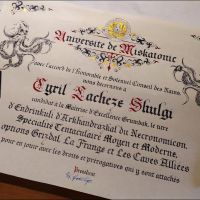
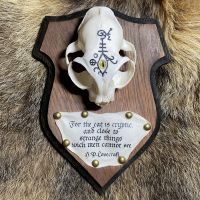
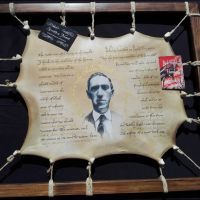
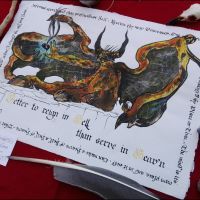
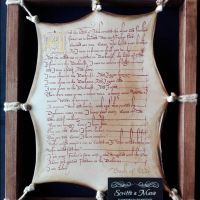
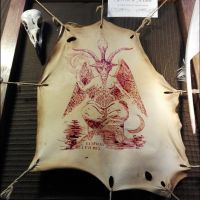
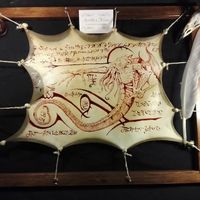
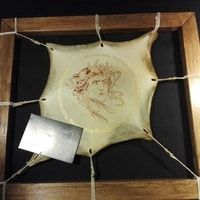
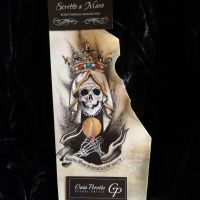
-min-700519cbfc43c6d967402ed4986e4e69.jpg)
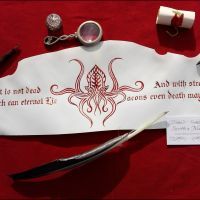
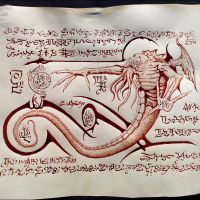
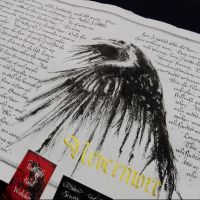
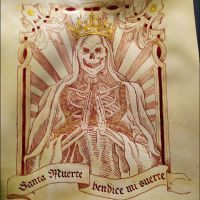

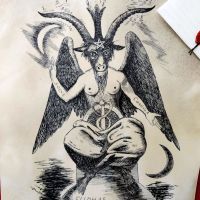
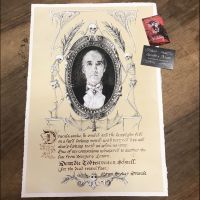
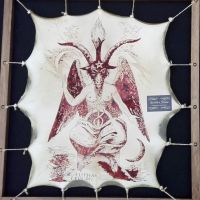

-min-637e21de746645b43d7518053b470ea0.jpg)
-min-2605d57b578a0fc0d50b210a86ba7ad1.jpg)
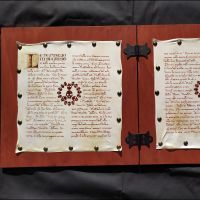
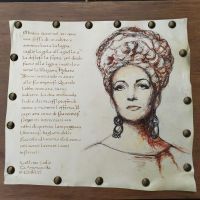
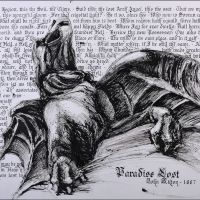
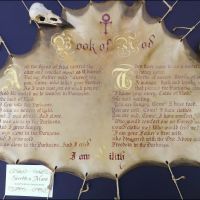
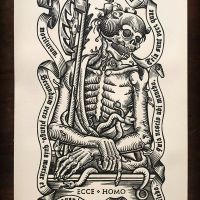
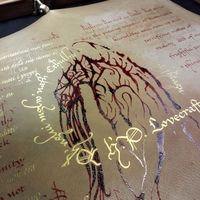
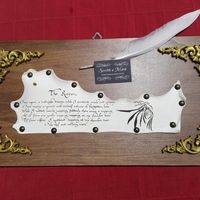
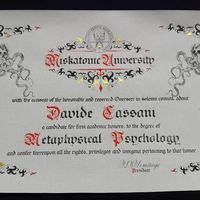
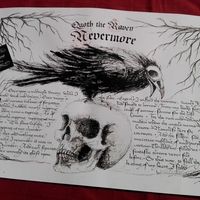

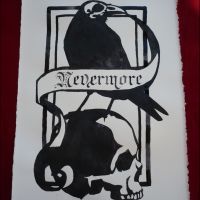
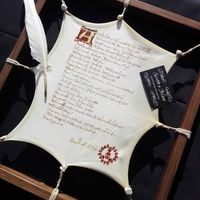
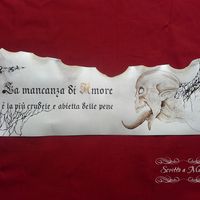
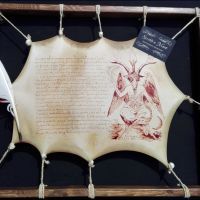
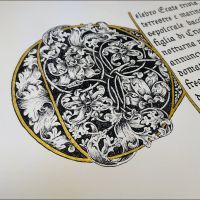
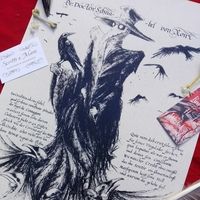
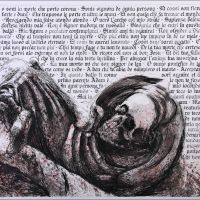
-min-223d974e6db6fa33dddfadc33ffe2a09.jpg)
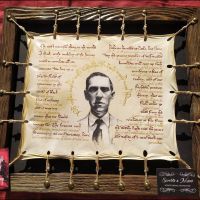
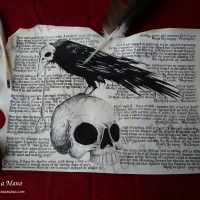
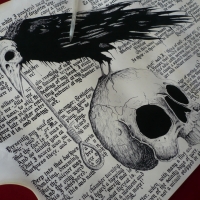
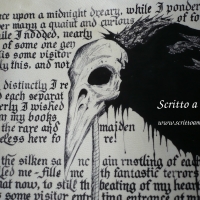
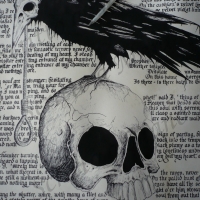
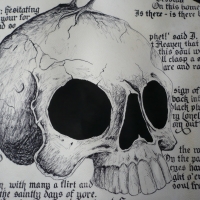
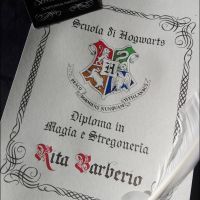
-min-c0aa0741e8773af32f5fbba60f181f5d.jpg)
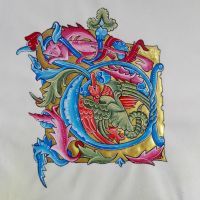
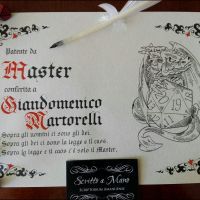
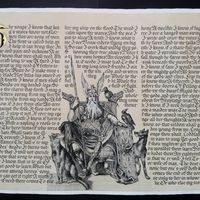
-min-c8375b5dcd6b1fd71ef4d0269eca5fd8.jpg)
